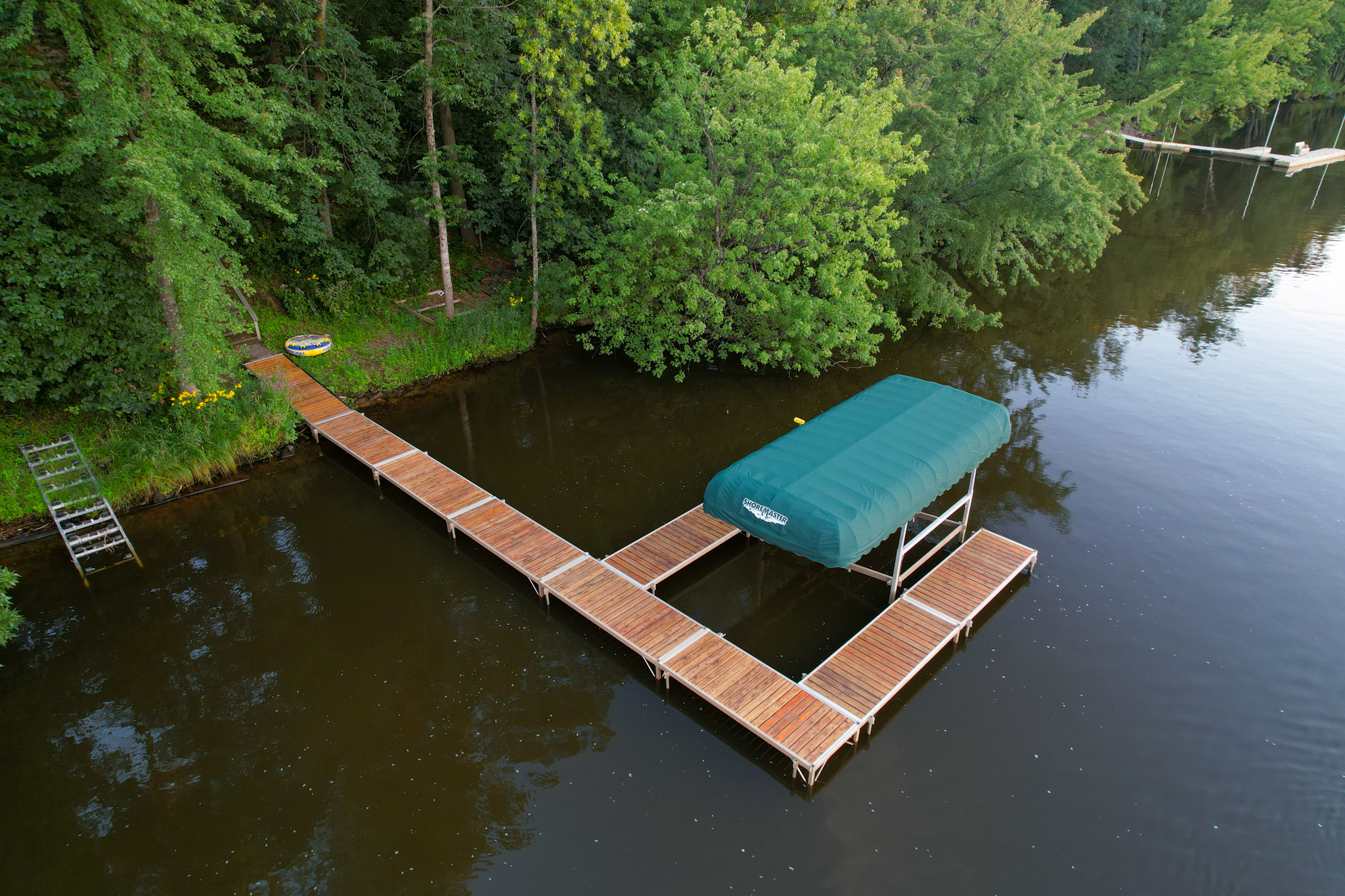Your Guide to Finding the Best Dock Company for Quality and Dependability
Your Guide to Finding the Best Dock Company for Quality and Dependability
Blog Article
Floating Docks: The Ideal Choice for Versatile Water Access
Floating docks present a compelling option for a range of water access needs, offering flexibility that transcends typical mooring choices. The modular nature of floating docks facilitates customization, providing to details needs.
Advantages of Floating Docks
Floating docks deal numerous benefits that boost water accessibility for various applications. Their capability to fall and rise with transforming water levels makes them especially advantageous in settings with changing tides or seasonal variants. This adaptability makes certain that vessels can quickly moor without worry for the water's depth, supplying a trustworthy platform for leisure, commercial, and commercial uses.
Additionally, floating docks are often built from sturdy materials that withstand rust, making them appropriate for lasting use in aquatic settings. Their installation is usually much less intrusive than traditional fixed docks, minimizing the ecological impact and helping with quicker implementation (floating docks). This flexibility permits much easier moving or reconfiguration according to customer demands or environmental changes
Safety is another key benefit; floating docks can give steady gain access to for individuals disembarking or boarding from boats and reduce the threat of crashes linked with unpredictable surface areas. Moreover, they can be created to fit a range of accessories, such as cleats and fenders, boosting capability. In general, floating docks represent an effective remedy for boosting water gain access to across varied fields while promoting safety and ecological sustainability.

Kinds Of Floating Docks
Various kinds of floating docks deal with various requirements and settings, each developed with details features to enhance capability. The most typical kinds include modular docks, which are composed of interlacing sections that enable simple customization and growth. These docks are ideal for leisure usage, as they can be customized to fit various boat sizes and water problems.
An additional popular option is the stationary floating dock, which stays secured in area but floats with altering water degrees. floating dock company. This kind is specifically suited for locations with minimal tidal fluctuations, supplying steady accessibility for angling or swimming. In addition, there are drive-on docks, which include a sloped layout that permits watercrafts to conveniently drive on and off, making them ideal for individual boat and smaller sized vessels
For business applications, sturdy floating docks are readily available, created from enhanced products to withstand significant loads and harsh aquatic settings. Last but not least, environmentally friendly floating docks utilize lasting materials and designs to minimize environmental influence, often including attributes like plant life to sustain regional wildlife. Comprehending the various kinds of floating docks ensures that customers can choose the most ideal option for their particular needs.
Installment Process Review
An effective installation of floating docks calls for careful preparation and focus to information to make certain optimum performance and safety and security. The first action involves analyzing the site problems, including water deepness, current, and possible challenges. This analysis notifies the option of the suitable dock products and design customized to the specific setting.
Next, acquiring necessary licenses is crucial, as several jurisdictions have laws concerning building and construction on water bodies. Once authorizations are secured, the setup can continue. Begin by preparing the structure, which may include anchoring systems or pilings customized to the dock kind and local conditions.
Adhering to the structure setup, set up the dock areas according to manufacturer specifications. Make sure that all parts are firmly fastened and lined up to stand up to ecological stresses. Position the dock in the designated area, ensuring it is degree and secure.

Maintenance Tips and Best Practices
After the installation procedure is full, ongoing maintenance plays an essential duty in making sure the durability and functionality of floating docks. Routine inspections need to be performed to determine any indicators of damages, wear, or wear and tear - floating docks. Look for any loosened fittings, splits, or separation in the dock areas, as these can jeopardize architectural stability
Cleansing the dock is vital to remove particles, algae, and other accumulation that can affect its look and safety. Make use of a gentle stress clean regularly to keep tidiness without creating damages to the surface. In addition, applying a protective More Help sealer every few years can aid boost long life and resist environmental wear.
Pay focus to the mooring lines and supports, guaranteeing they are secure and complimentary from corrosion. Change any kind of degraded elements promptly to prevent threats. Seasonal adjustments may likewise be necessary; during extreme weather, repositioning or strengthening the dock can prevent damage.
Applications for Floating Docks
Floating docks offer a multitude of applications, dealing with both business and entertainment needs. In entertainment setups, they provide seamless access to waterways for activities such as boating, fishing, and swimming. Their adjustable nature permits installment in differing water degrees, wikipedia reference making certain stable and safe access no matter tidal fluctuations.
Commercially, floating docks are essential for marinas and waterfront companies. They help with the docking of vessels, allowing effective unloading and loading of goods. Their modular design permits easy development or reconfiguration to suit transforming organization needs, making them suitable for boat leasings, trip operations, or fishing charters.
In addition, floating docks are utilized in environmental applications such as marine study and habitat remediation. They can work as systems for clinical research studies, keeping an eye on water high quality, or conducting wild animals studies without disturbing sensitive ecosystems.
In commercial contexts, floating docks are used in building projects, giving accessibility to hard-to-reach areas for tools and workers. Their flexibility, resilience, and minimal influence on the atmosphere make them an optimal selection for a variety of applications, improving both functionality and access in different water-based environments.
Verdict
In conclusion, floating docks represent an ideal remedy for varied water access needs, owing to their adaptability, toughness, and modular layout. Floating docks offer as a beneficial asset for recreational, commercial, and environmental projects, guaranteeing i loved this reputable accessibility to rivers and advertising lasting methods in water atmospheres.
Floating docks present a compelling solution for a variety of water access needs, offering versatility that goes beyond typical mooring alternatives.Floating docks deal various advantages that improve water access for various applications. Overall, floating docks represent an effective solution for boosting water accessibility throughout diverse sectors while promoting safety and security and ecological sustainability.
One more popular option is the fixed floating dock, which remains secured in area however floats with changing water degrees.In final thought, floating docks represent an optimal remedy for varied water access requires, owing to their versatility, sturdiness, and modular design.
Report this page